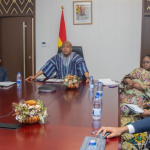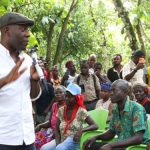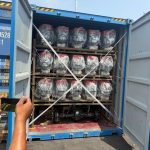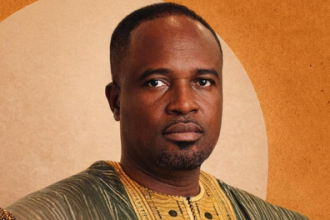The rate of deterioration of Ghana’s ecosystem is alarming.
As a country, we are endowed with plentiful and magnificent natural resources, yet for so many years our inability to protect and conserve these resources has become a mirage. From the savannah plains in the North to the tropical forest in the heart of the country, down to the coastal ecosystem in the South are all being lost due to our insatiable appetite for development.
Yes, development, every country needs it, Ghana needs it but not to the detriment of our environment. Despite all the laws and regulations put in place to protect our environment, nothing seems to be working. Our environment is stinking of filth, our rivers turned brown, our forest reduced to red earth with our coast turned into islands of plastics.
Illegal mining (“galamsey”) has left our forest bare. Our soil and rivers are left with high levels of mercury and other metals putting our food in great peril, becoming a threat to our food security and the vulnerable state of health as a nation. Our rivers are no more potable. The unlawful logging activities happening in our forest and the savanna areas are causing more harm to our natural landscape. Livelihoods are being lost. Ghana is losing millions of dollars in revenue annually through this uncontrolled and unsustainable cutting down of unique tree species. Our biodiversity as a nation is declining so fast yet we have reduced ourselves to petty politics and squabbles. This can only be a testament to our failed state of national consciousness and sense of priority. Our ecosystem is our future. Our agriculture depends on it. Our water depends on it. Our livelihood depends on it. Our wildlife depends on it.
Turning this around will require a strong political will to push through with laws and policies governing our environment. Even though the government, past and present, have put in measures to halt such menace, there seems to be no transparency in the actions of the government. While some actions are ad hoc in nature, hence unsustainable, some are engulfed with corrupt practices. There needs to be a shift in paradigm in how government works in protecting our natural capital and a behavioural change from the top to the bottom.
All hope is not lost. We can salvage the remains of what is left. From the north to the south, we need to engage in a massive and deliberate reclamation of our degraded landscape. Often times, we engage in tree planting without any intention of seeing them through to maturity. Reforestation and afforestation are not just about planting trees. It has to be deliberate and planned. Communities need to be engaged at all levels. Civil society has to double their efforts in scrutinizing the government’s work as well as partnering them to implement conservation actions that will safeguard our environment.
Written by Faisal Elias. Faisal Elias is the Policy and Advocacy Officer of the Ghana Wildlife Society
















